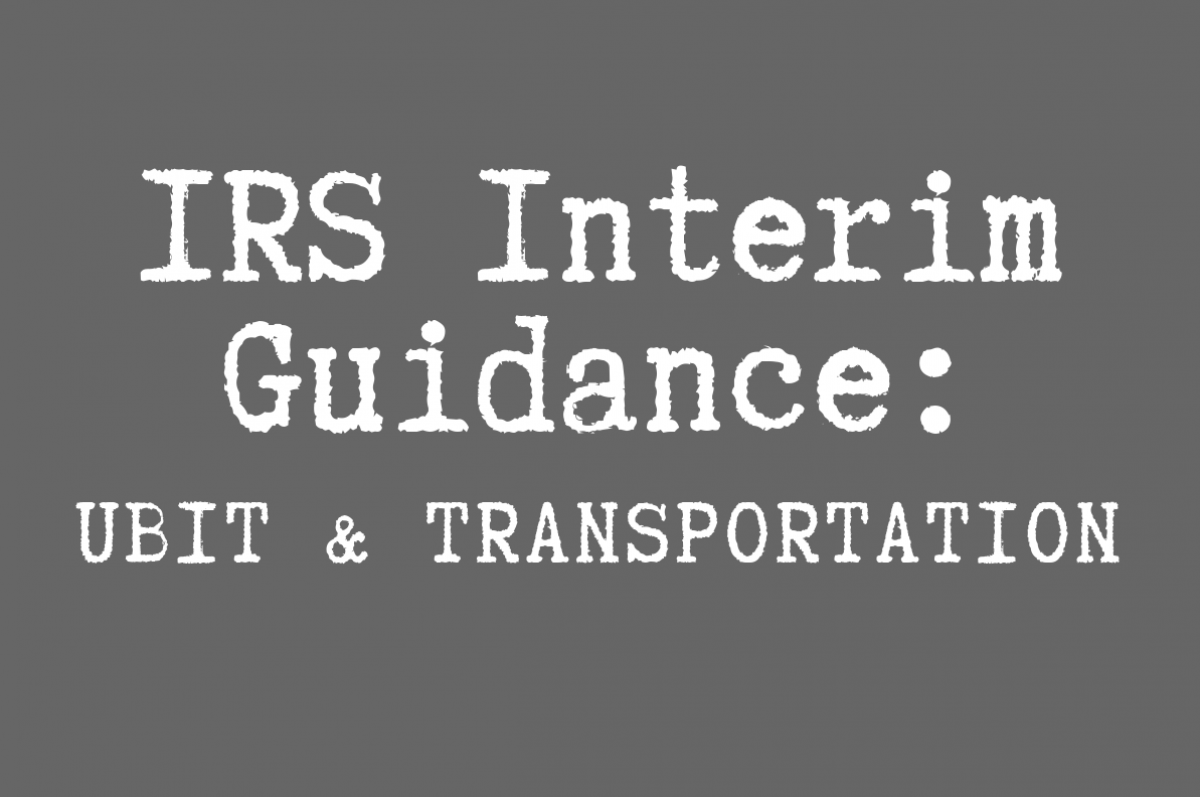
CA Budget Time Again: Small Surplus is Back But Catastrophic Needs Ahead
01.11.2025 | Linda J. Rosenthal, JD

By the fall of 2017, GOP leaders of Congress were determined to pass a major tax overhaul before the end of the year. But much of the detail work had not yet been done. They moved draft legislation through each chamber so quickly that many lawmakers were unable to read all, or even a substantial part, of the proposed additions and amendments to the federal tax code before the scheduled votes.
Nevertheless, The Tax Cuts and Jobs Act (TCJA), including sweeping changes affecting almost all entities and individuals, was passed and signed into law at the end of December 2017.
When the dust settled, there was surprise and dismay – including by many legislators who voted for passage – about many parts of the newly enacted tax law. To add insult to injury to the rushed manner in which this legislation was crafted, lawmakers included effective dates for most provisions on January 1, 2018. Ordinarily, there are delayed effective dates or transition provisions to allow affected parties to make necessary plans for the changes.
It is common practice for Congress to pass technical-corrections bills to fix errors or ambiguities or to mitigate parts of a new law that are poorly received. In this case, though, little in the way of such corrective measures occurred by the end of 2018.
UBIT Changes
Among the provisions of the TCJA are several changes directly or indirectly affecting tax-exempt organizations. One of the most controversial is a new limitation on businesses deducting transportation fringe benefits related to employee transportation unless the employee recognizes income related to the fringe benefit. There are unintended negative consequences to many exempt organizations, though, although the original intent of applying the new rules across the board was to create parity between for-profit and nonprofit employers.
Specifically, under new Section 512(a)(7) of the Internal Revenue Code, tax-exempt organizations must increase their unrelated business taxable income (UBTI) by the amount paid or incurred for “qualified transportation fringe benefits” (QTFs) provided to employees. This delightful new acronym includes parking and mass-transit benefits. There is now taxable income to the employee whether or not the employer pays for the benefits directly or allows employees to pay for the benefits on a pre-tax basis. “Made effective Jan. 1, 2018, mere days after the new law was enacted, many tax-exempt organizations were facing the daunting requirement to calculate, report, and pay income tax for the first time.”
New Guidance
Right out of the gate, there were howls of protest from across the nonprofit sector including, particularly, from houses of worship. There has been considerable discussion in the philanthropy community about possible tweaks to new Section 512(a)(7) to ease the pain – or, preferably, to eliminate it entirely by outright repeal.
All year this opposition and frustration brewed, buoyed from time to time by talk from lawmakers recognizing the problem. There was no Congressional action by the end of 2018, but in mid-December, the Treasury and IRS released two notices which are designed to answer some of the perplexing questions about how to comply with the new UBIT statute and to alert interested parties that the government intends to issue proposed regulations – in the event the new Congress fails to act.
In a statement, Secretary Steven Mnuchin explained that “Treasury is sensitive to the concerns of the tax-exempt community, and hopes this guidance can significantly limit the impact on non-profit groups” by adding a “…roadmap for navigating their responsibilities” under the new law. “ The guidance … aims to provide flexibility while minimizing the burden on non-profit groups that provide employee parking.”
Notice 2018-99 gives “interim guidance for taxpayers to determine the amount of parking expenses considered to be QTF.” Specifically, until Treasury issues final regulations on this topic, “taxpayers and tax exempt organizations that own or lease parking facilities where their employees park may use any reasonable method, as provided in section B of the Interim Guidance on QTF Parking section of this notice, to determine the amount of nondeductible expenses under § 274(a)(4) or the amount of the increase in UBTI under § 512(a)(7).” They may also “rely on the guidance in this notice to determine the amount of nondeductible parking expenses for QTFs under § 274(a)(4), and tax-exempt organizations may rely on the guidance in this notice to determine the amount of the increase in UBTI under§ 512(a)(7).”
The second document, Notice 2018-100, provides certain tax-exempt organizations that are first-time Form 990-T filers, due to the imposition of the new QTF rule, a waiver of penalties for underpayment of estimated income tax payments required to be made on or before December 17, 2018.
Reaction to Feds’ Advice
This interim guidance is not all good news. “In a law intended to create tax simplification, this notice explains how to apply the section by requiring nonprofits of all sizes to follow a four-step calculus that will vary for each organization, and can vary from month to month,” according to David L. Thompson, vice president of public policy for the National Council of Nonprofits.
Mr. Thompson adds: It “provides minimal instruction, relieves some organizations of penalties that result from the IRS’s own delay, and completely ignores the imposition of the new taxes on transit benefits — benefits that are mandated for some employers in various cities.”
Conclusion
Following standard procedure for issuing proposed regulations, the public is invited to submit comments by February 22, 2019. Comments should refer to Notice 2018-99. They may be submitted electronically via the Federal eRulemaking Portal at www.regulations.gov (type IRS-2018-0038 in the search field on the regulations.gov homepage to find this notice and submit comments).
Alternatively, interested parties may send submissions by mail to: Internal Revenue Service Attn: CC:PA:LPD:PR (Notice 2018-99) Room 5203 P.O. Box 7604 Ben Franklin Station Washington, D.C. 20044 or by hand or courier delivery to 1111 Constitution Ave., NW, Washington, D.C. 20224.
